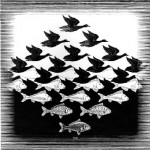What The Birthers Have Taught Us About Barack Obama And The Constitution
The campaign to prove that Barack Obama is not eligible to serve as president of the United States, carried out by certain opponents who have become known as “Birthers,” has succeeded in establishing (1) that Obama is in fact eligible to be president and (2) that Article II, Section 1 of the United States Constitution, which lists the eligibility requirements for the presidency, leaves a number of unanswered questions.
Article II, Section 1, provides, in part:
No person except a natural born Citizen, or a Citizen of the United States, at the time of the Adoption of this Constitution, shall be eligible to the Office of President; neither shall any Person be eligible to that Office who shall not have attained to the Age of thirty-five Years, and been fourteen Years a Resident within the United States.
Unfortunately, neither the Constitution itself nor the documentary record pertaining to its drafting and ratification in the 1780’s provides any additional insight into what the framers specifically meant by the phrase “natural born citizen.”
Because of the absence of specific standards, Congress has been forced to define what the phrase means, which it has done in a series of citizenship and immigration acts dating from 1790.
Certain factors definitely make one a “natural born citizen.” It has always been accepted that any white person, and since 1870, any person of any race, actually born in the United States is eligible to be elected president once they reach the age of 35 and have been 14 years a resident. (Male gender was never a prerequisite, even when women were denied the right to vote. That is how Belva Lockwood could run for president in 1884 as the candidate of the National Equal Rights Party.)
It has also been accepted from the beginning that a person born outside the United States with two citizen parents is a natural born citizen. Although no president has ever fallen into this category, a number of actual and potential presidential candidates have, including turn-of-the-last-century Supreme Court Justice David Brewer (born in the Ottoman Empire), nineteenth-century Republican politician John S. Wise (Brazil); Michigan Governor George Romney (Mexico), and 2008 Republican nominee John McCain (Canal Zone).
What is less clear is (1) what constitutes the United States for “born in” purposes, i.e., which territories, if any, are included, and (2) what is the citizenship status of an individual born outside the United States with only a single citizen parent. Congress has answered these questions differently in different eras.
Had Barack Obama actually been born in Kenya, as some Birthers claim, he would have fallen into the category of having been born outside the United States with one citizen parent and one alien parent. (Of course, he wasn’t born in Kenya; he was born in Hawaii, after it had become the 50th state.)
Originally, citizenship in such situations passed through the father. If the father of a foreign-born individual was a United States citizen, then the individual was a “natural born Citizen” regardless of the nationality of his or her mother. To become a U.S. citizen, a foreign-born or “outside the U.S.-born” individual with a citizen mother and an alien father had to go through the naturalization process and was not eligible to run for president of the United States.
This was a feature of the original American naturalization statute of 1790, and was a provision that was retained throughout the nineteenth century and through the first third of the twentieth. In fact, the United States citizenship of the mother could not be passed on to a foreign-born child until Congress changed the naturalization laws in 1934.
At the time of Barack Obama’s birth in 1962, 8 U.S.C.A. § 1401 provided that
The following shall be nationals and citizens of the United States at birth:
* * *
(g) a person born outside the geographical limits of the United States and its outlying possessions of parents one of whom is an alien, and the other a citizen of the United States who, prior to the birth of such person, was physically present in the United States or its outlying possessions for a period or periods totaling not less than ten years, at least five of which were after attaining the age of fourteen years . . .This proviso shall be applicable to persons born on or after December 24, 1952, to the same extent as if it had become effective in its present form on that date . . . .
Were Obama actually born outside of the United States, then it would appear that under this statute he would not be a “citizen of the United States at birth.” His father was unquestionably a citizen of Kenya, then part of the British Empire, and his eighteen-year-old mother could not have lived in the United States for a minimum of five years after obtaining the age of fourteen. (She could not have done this because she was only 18 when he was born on August 4, 1961. She did not meet the five years “after attaining the age of fourteen years” requirement until the following November 29, when Obama was almost four months old.) Consequently, under this counterfactual scenario, Barack Obama would appear to be ineligible to be president.
However, on November 14, 1986, when Obama was twenty-five years old, Congress enacted an amendment to the above statute, which substituted “five years, at least two” for “ten years, at least five” in the language describing the length of time the citizen parent had to live in the United States after age fourteen. This new standard, unlike the one adopted in 1952 and in effect in 1962, was met by Obama’s mother when she turned 16, more than two years before the birth of her son.
Moreover, according to it terms, this amendment, like the section itself, applied retroactively to anyone born after December 24, 1952, which, of course, included Barack Obama.
Whether or not Congress has the power to reclassify someone as a “United States citizen at birth” after twenty-five years of being classified as not “a United States citizen at birth” is an interesting constitutional question. Could Congress, for example, make the Austrian-born Arnold Schwarzenegger, who had no U.S. citizen parents, eligible to run for president by adopting a statute that defined “natural born citizen” as someone born after gestating in his biological mother’s womb? Presumably not, but why wouldn’t that logic apply to the 1986 amendment? Is it possible that a person such as our hypothetical foreign-born Obama who had a too-young citizen mother could be a citizen of the United States at birth (under the revised statute) but nevertheless not eligible under Article II, Section I?
Fortunately, we do not have to address the question of the retroactive application of the 1986 amendment and its relation to Article II, Section I, because President Obama really was born in the United States.
However, the birthers have provided us with a very interesting civics lesson regarding presidential eligibility, and now most of us know much more about Article II, Section I than we ever did before.

 Some people dislike the game of soccer. They observe the players running around on the field and it all seems like random chaos. Soccer aficionados, however, are not focusing on the players. They are watching the spaces in between the players. These empty spaces ebb and flow, like waves in the ocean, creating momentary opportunities for the attacking side.
Some people dislike the game of soccer. They observe the players running around on the field and it all seems like random chaos. Soccer aficionados, however, are not focusing on the players. They are watching the spaces in between the players. These empty spaces ebb and flow, like waves in the ocean, creating momentary opportunities for the attacking side. On September 17, I participated in the Constitution Day program at the Law School. All of the presenters were asked to discuss one part of the United States Constitution that is often overlooked. My choice was the “republican form of government” clause, Article IV Section 4, which reads as follows: “The United States shall guarantee to every state in this Union a Republican Form of Government . . . .”
On September 17, I participated in the Constitution Day program at the Law School. All of the presenters were asked to discuss one part of the United States Constitution that is often overlooked. My choice was the “republican form of government” clause, Article IV Section 4, which reads as follows: “The United States shall guarantee to every state in this Union a Republican Form of Government . . . .”